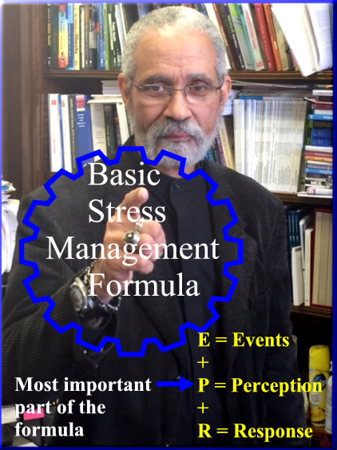Stop Letting Stress Impact Your Life
Stress is a normal part of everyday life. Some levels of stress are even healthy and can contributing to keeping us alert and functioning at our best. Many of us, however, have difficulty managing our stress.
Some stress disorders are hereditary and can be caused by imbalances of the chemicals that help the mind and body communicate. Many stress disorders are caused because what the body considers a threat and what the mind considers a threat aren’t the same thing.
Stress and Life Events and Some Tips to Follow
For those of us who have survived accidents, combat (post-traumatic stress disorder or PTSD), or other extreme and real dangers stress disorders can come from having a hard time adapting to life outside of high levels of stress.
Whatever the cause of your stress, whether it be a personal concern or a diagnosed disorder, stress shouldn’t control your life and there are certain things that you can try to take control of it. If you are already seeing a medical professional about your stress, these tips may help to supplement the help that you are receiving. If you are not talking to a medical professional, these tips may still help you, but they are not a substitute for other forms of intervention.
Talk To A Friend
One of the biggest ways to avoid letting stress impact your life is to realize that stress isn’t an unusual thing, or something that only affects you.
According to the National Alliance on Mental Health, over eighteen percent of American adults suffer from a severe stress like Anxiety or Post Traumatic Stress Disorder. That’s roughly one in five people.
Being familiar with these statistics may help you to feel more comfortable about talking to a healthcare provider, though it may also help you to feel more comfortable talking to a friend or community member. Casually talking to a friend or community member can be a good way to get advice about how to deal with stress, but it can also help for you to determine how bad your condition may actually be – or not be.
Focus On Life Before Your Stress Problem
Whether stress comes on gradually due to life changes, or quickly due to an incident or experience, you shouldn’t let stress stop you from doing things that you used to enjoy.
It’s natural for stress or a stress disorder to make new things seem scary but they can also have this effect on experiences that we regularly enjoyed in the past. For example, gradually on-setting stress may make you not want to spend time with old friends, or a car accident may make you want to avoid driving, or even riding in or being around cars.
It’s important to remind yourself that these events went well for you in the past and that seeing them differently now doesn’t change the nature of the activity. Even if the activity did go poorly for you once in the past, as in the case of the car accident, that was only one of many incidences with most of them having gone well.
Ease Into Stressful Activities
When stress or a stress disorder leads us to fear pursuing a certain activity, doctors often recommend that we ease ourselves back into it.
To return to the car accident case, it might not be healthy for you – or safe for those around you – for you to try to face your fear by forcing yourself into the driver’s seat before you’re ready. If you froze or had a panic attack behind the wheel it could cause an accident, potentially hurting yourself or others and reinforcing your fear rather than fighting it.
Instead, try taking taxis or riding with friends and family for a while before getting behind the wheel again. At first it may even be helpful to read a book in the car instead of paying attention to traffic.
Conclusion
The father of stress research, Hans Selye, said “Life without stress means death.” Basically, while there will always be some form of stress in our lives, normal stress, we have to be aware of the good stress (eustress, like preparing for and doing a presentation) and, more importantly, we must recognize and control the bad stress (or distress, e.g., taxing work conditions).














